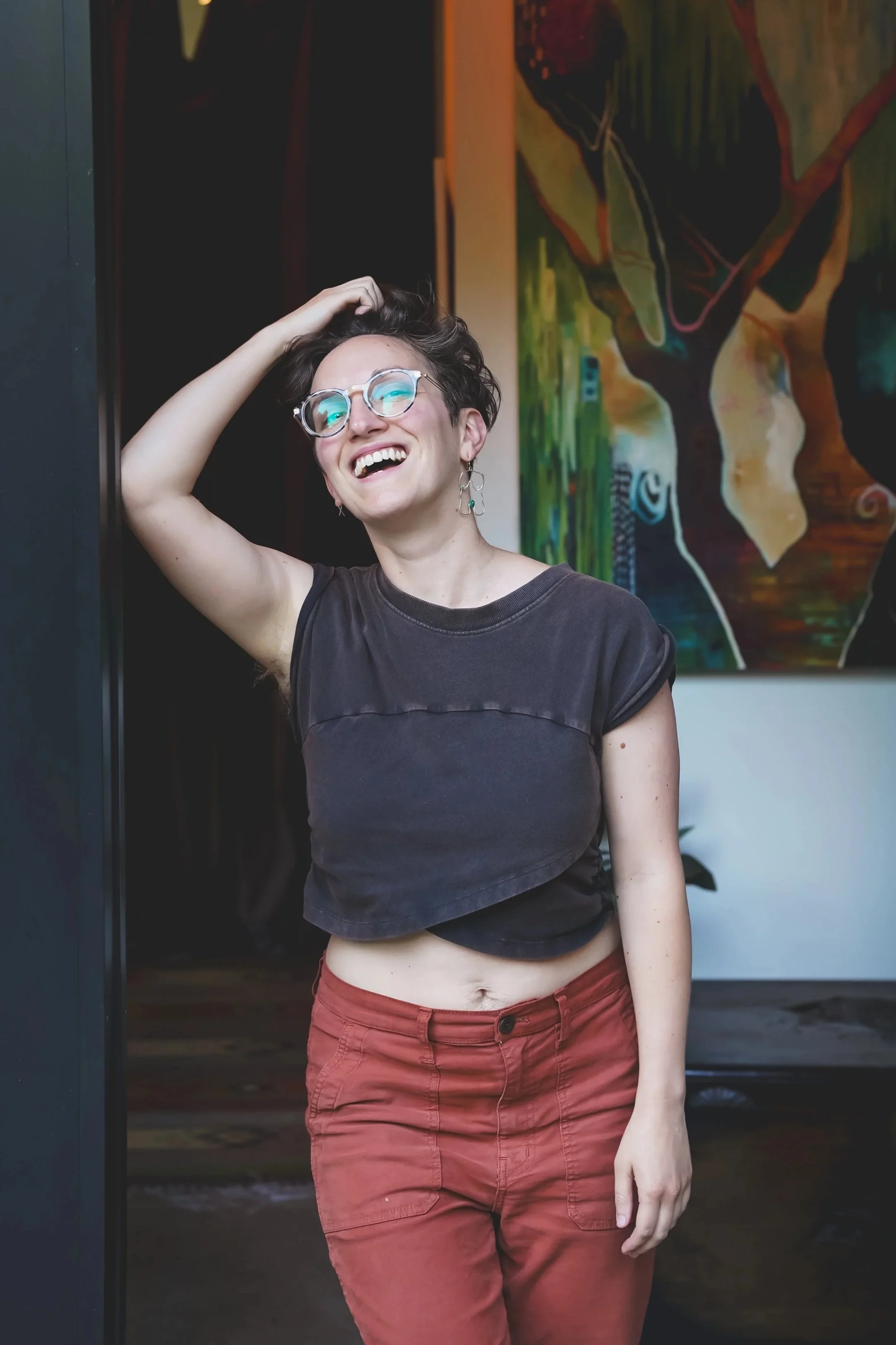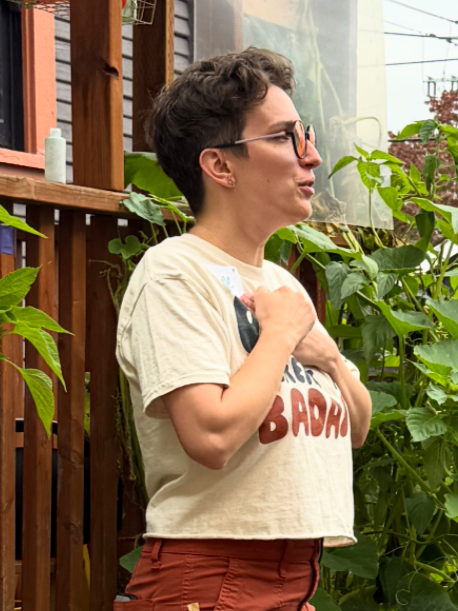About
photos by Amy McMullenJane
(they/them)
I am a white, queer + nonbinary, artist, parent, somatic expressive arts therapist, chronic illness-haver, embodiment nerd, community builder, and group facilitator. I value engaging in authentic connection, art of all kinds, humor, play, and the phenomenal natural world we have the honor of being part of. Social justice, community-building, creative expression, and awareness practices are the realms where I find my deepest purpose, so it is crucial to me to remain in integrity in all of these through my work and life. I believe in and advocate for equitable access to pleasure, compassion, belonging, and connection for all.I’ve always been a person to do my own thing despite oppressive social expectations (*ahem, patriarchy*). And those are the folx I’m drawn to in life and in this tending work. Becoming and being a parent is one of the most challenging honors and responsibilities to take on in this life. Being a queer parent can make it feel all the more challenging. Holding the beauty, heaviness, grief, and joy of family-building with others is something I have grown to truly feel called towards.
After experiencing some of the ‘traditional’ feminized birthwork, perinatal medical care, mental health care, and overall societal cis-het biases in my pregnancy, postpartum period, and parenthood, I felt both inspired and disheartened. Portland is supposed to be a queer paradise, right?! Thankfully my birthing team were amazing and I felt held and affirmed by my immediate supports. But when it comes to ongoing care for the demands and constraints of parenting-while-’other’, it’s really lacking out there. Parents of all family structures, genders, and sexualities need liberatory support, real care. With my own physical and mental health struggles through pregnancy and beyond, I know that lack all too well.
That’s why I’m here.
My formal education includes a BA in Anthropology, an MS in Primatology, and a Masters in Clinical Mental Health Counseling. I have professional training in perinatal mental health (including through Postpartum Support International), justice-centered group facilitation, community building, and anti-oppression practices in healing spaces.Some therapeutic training lineages that inform my practice: Hakomi methodology, Tamalpa’s Life-Art Process, Body-Mind Centering, nonviolent communication (NVC), Gestalt, and Somatic Experiencing (SE). Other lineages that inspire my worldview: Celtic mysticism, early somatics pioneers of Germany and eastern Europe, Kingian nonviolence, Buddhist principles. I continue to integrate the works and practices of writers/feelers/artists/teachers in their own fields: adrienne maree brown, Prentis Hemphill, John O'Donohue, Marika Heinrichs, Kazu Haga, Kai Cheng Thom, Ocean Vuong, and Tara Brach, among many others. I occupy the unceded Native lands of the Multnomah, Wasco, Kathlamet, Clackamas, Cowlitz, Chinook, Tualatin Kalapuya, Molalla (Portland, Oregon). My ancestors were mostly Irish and Western European who immigrated to southeastern North America in the late 1800s. I build my lifework around tending well to this earth, doing what I can to repair relationships to people and land in respect to the indigenous peoples and future peoples of the world.What it’s like to work with me
Whether in 1-1 sessions or group containers, I hold a warm, calm, playful, and sturdy energy. Starting from the moment you arrive, I gently orient you to the space, our relationship, and your present self-awareness with an emphasis on resource.
Creativity plays a vital role in all my work– even if you never touch a pen or brush. Between imagery, somatic sensing, movement, art-making, and awareness, your creative energy is the magic catalyst that allows space to open up, shifts to occur, and power to be held. I offer intuitive guidance into this creative energy and awareness so we can be together with all that’s moving through you.


